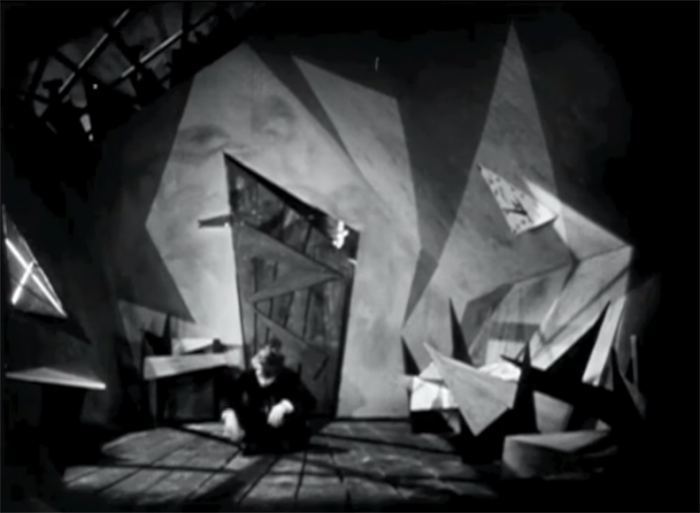
Screen capture from The Telltale Heart
United States
English
00:24:00
16mm
B&W
Silent
"The TellTale Heart is a 1928 American silent film directed by Charles F. Klein, based on the short story by E.A. Poe. This experimental, avant-garde film used many new techniques and influenced a series of cinematic Poe renditions in both the United States and France, including The Fall of the House of Usher by M. Webber, made in the same year. The two films have many aesthetic similarities, although the narrative in The TellTale Heart is significantly less abstract. The music underscoring the work creates a parallel drama to the events unfolding on the screen. After the title sequence, some of the text from the original short story is projected to foreshadow the gruesome events to follow. A still of the Old Man's eye is layered on the top of this scrolling text, accompanied by the first statement of the “Vulture Eye Chord”, which continues to come back as a leitmotif throughout the score. Also prominent is the leitmotif for our narrator, which takes the shape of a disturbingly quick and easily unhinged "Death Waltz". Upon strangling the Old Man for his vulture eye, the waltz quickly dissolves into a quick 5/8 section, dignifying the beating of a heart, which gradually slows. After two detectives come to investigate the scene, the narrator having initially been successful in covering up his deceit, the underscoring reveals to us that he's been tortured by his deeds as the two leitmotifs emerge from an otherwise calm texture. After hearing the beating of the Old Man's heart beneath the floorboards, the narrator admits to his sin and reveals the body at the end of the film" Center for Fiction, NY.
Tepperman, Charles. Amateur Cinema: The Rise of North American Moviemaking, 1923-1960. University of California Press, 2014, pp. 75, 199, 283.
Unseen Cinema